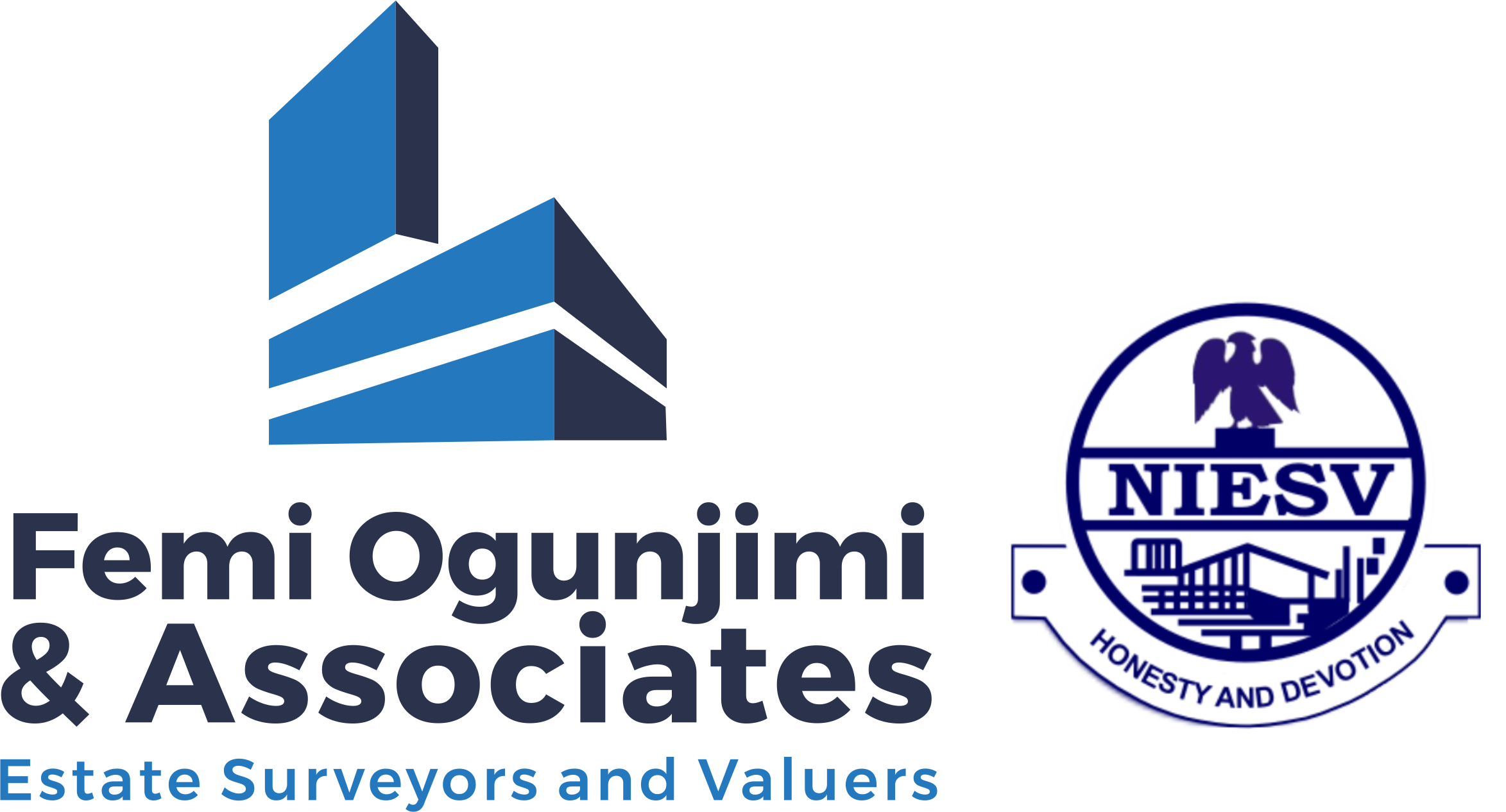Top Real Estate and Property Valuation Trend in 2025
By Femi Ogunjimi and Associates – Professional Real Estate Consultants, Nigeria
The Nigerian real estate market is entering a new phase in 2025, shaped by economic realities, government reforms, and evolving investor behavior. As one of Africa’s largest and fastest-growing markets, Nigeria presents a unique mix of opportunities and challenges in the real estate valuation space.
At Femi Ogunjimi and Associates, we’ve identified the most influential trends that are currently shaping how properties are being valued across Nigeria’s urban and emerging areas.
1. Title Documentation Now Heavily Impacts Valuation
In Nigeria, land title security remains a top concern. The difference between a property with a valid Certificate of Occupancy (C of O) and one with only a Receipt or Survey Plan can affect its market value by over 30%.
Case Example: In parts of Lagos Mainland, plots with a C of O sell for ₦45M+, while nearby untitled plots struggle to fetch ₦25M due to legal uncertainty.
2. Infrastructure Development = Instant Value Appreciation
In 2025, government-backed infrastructure projects—like the Lekki Deep Sea Port, Lagos-Calabar Coastal Highway, and Abuja-Keffi Express expansion—are rapidly increasing property values.
Case Study: Epe, once considered remote, is now seeing a 50–70% increase in land prices due to infrastructure upgrades and proposed airports.
Valuers must now factor in proximity to future infrastructure when determining projected values.
3. Rise in Professional Property Valuation Reports
With stricter lending regulations from banks and mortgage institutions in Nigeria, professional valuation reports are now mandatory for:
- Property-backed loans
- Investor due diligence
- Asset liquidation and probate processing
Clients increasingly demand valuation reports from certified estate surveyors and valuers, not just developer price tags.
4. Shift in Buyer Behavior – Rental Income Now Central
Due to inflation, FX fluctuations, and limited access to long-term mortgage financing, many Nigerians are now buying for rental income rather than long-term resale.
This has led to increased demand for:
- Short-let apartments in Lekki, Maitama, Wuse II
- Mini-flats and self-contained units in high-density areas like Yaba, Surulere, Ajah, Kubwa, and Port Harcourt
Valuation now factors Annual Rental Yield as a major metric for investor-grade properties.
5. Diaspora Investments Driving Premium Valuations
Nigeria’s diaspora community, especially from the UK, US, and Canada, is injecting capital into off-plan and luxury residential properties.
Example: Gated communities in Abuja’s Katampe Extension and Lagos’ Ikate are seeing off-plan prices increase by 20–30%, driven largely by foreign investors seeking verified titles and secure developments.
6. Mixed-Use Developments Increasing in Urban Hubs
From Eko Atlantic (Lagos) to Centenary City (Abuja), mixed-use developments that combine residential, retail, and leisure are becoming popular — and are commanding higher valuation figures per square meter.
Valuers now assess income streams across different components of the development: residential, commercial, recreational, and service.
7. Poor Drainage, Flood Risk Now Reduces Valuation
Given Nigeria’s worsening flooding problem, especially in Lagos, Bayelsa, and Delta, properties in flood-prone zones are now seeing lower valuation scores — regardless of how beautiful or well-finished they are.
Tip: Always demand a drainage and soil test before buying land in water-adjacent communities.
8. Green & Smart Homes Begin to Fetch Premium Prices
Smart home features (solar panels, biometric locks, water heaters) and sustainable infrastructure are now gaining traction in Lagos, Abuja, and Port Harcourt.
Case Example: Properties in Ajah and Gwarinpa with solar + CCTV are commanding up to 15–20% higher valuations in 2025.
9. Urban Sprawl is Pushing Value to New Locations
Due to high prices in city centers, buyers and investors are now turning to fringe areas like:
- Ibeju-Lekki, Mowe-Ofada, and Alagbado in Lagos
- Karu and Lugbe in Abuja
- Rukpokwu and Akpajo in Port Harcourt
These “new frontiers” offer high appreciation potential, but valuation must carefully consider legal documentation and access to infrastructure.
10. PropTech is Influencing Transparent Valuation
Digital platforms like Fibre, RentSmallSmall, BuyLetLive, and others are now offering clearer price benchmarks, market trends, and property performance data — allowing valuers to give more accurate, market-reflective assessments.
Final Thoughts
In 2025, the Nigerian property market rewards informed decisions. Whether you’re an investor, homeowner, or developer, understanding the evolving valuation dynamics is key to maximizing returns and minimizing risk.
At Femi Ogunjimi and Associates, we offer:
✅ Professional valuation reports
✅ Real estate advisory
✅ Investment portfolio optimization
✅ Property due diligence support
📞 Ready to Get an Accurate Valuation or Investment Advice?
Let’s guide you with experience, professionalism, and market-tested insights.
📍 Nationwide Service | Certified by NIESV
📩 DM or Email us today to get started.
